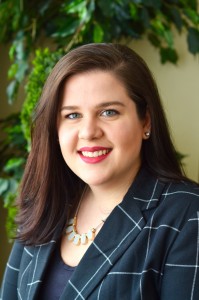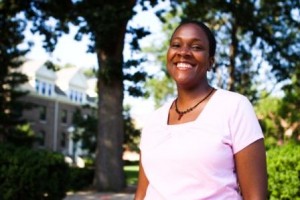 Ellie VerGowe is currently serving as Ministerial Resident for Community Outreach at First Covenant Church on Capitol Hill in Seattle. Ellie enjoys singing at the top of her lungs, being outside and reading a good book on a rainy day with a friend and a cup of tea.
Ellie VerGowe is currently serving as Ministerial Resident for Community Outreach at First Covenant Church on Capitol Hill in Seattle. Ellie enjoys singing at the top of her lungs, being outside and reading a good book on a rainy day with a friend and a cup of tea.
In the weeks following the election I have felt a sinking feeling in my heart…a feeling that I wish weren’t so familiar.
My heart sinks to a familiar place when I hear that so many of my white evangelical sisters and brothers voted for our president-elect. While I love the church I serve (and oh do I love this church I call home!) and I find it to be a place that is working hard to value and respect women in every way, I have found various Christian spaces to be places where myself, my body, mind and thoughts are not fully welcomed in the female form they are in. My body and clothes are commented on and prioritized over the words of my sermons over the years. My marital status causes some to question my ability to serve in a church because some subconsciously believe my worth and what I can offer the world is defined by my relation to a man.
My heart sinks to its familiar place because I have experienced a lot of harassment on my way to work and to school throughout my life. It has little to do with the way I look and much more to do with my gender…I could wear a snowsuit covering my entire body and be catcalled (this has happened). I have been yelled at, grabbed, followed home and my only thought in those moments is to get to my destination safely, no matter the inner revulsion I feel at having to ignore the men who harass me. I want to defend myself and speak truth, but sometimes I must keep the peace to keep my life. I am certainly not alone in these stories…every woman I know has stories, and most of them are more painful than my own.
These are only a few difficult examples of what it means to be a woman in American society… and I while I had hope for a woman president, I wasn’t surprised that it has not yet come to pass. When a woman is grabbed and harassed even in places of worship, I knew a woman couldn’t be trusted by the powerful to lead this country. Even a wealthy, white woman like Hillary Clinton is too subversive and threatening to the powers that be.
We have a new president-elect that causes many women in our churches to feel afraid and even more inferior they they did before. So, my dear brothers and sisters…my friends in the Church (regardless of who you may have voted for)…what does God call us to do when someone in our midst feels alone and afraid? What does scripture tell us to do when one member of the body mourns? What do we do when we see injustice?
We need all people in the body of Christ to do justice for those in our midst who identify as women and girls. Perhaps your church could work to develop young women leaders in your congregation. You can find hymns and songs to sing in worship of our Creator that use inclusive language. You can make sure women around you are heard and you can refuse to interrupt them whose voices have been suppressed. You can call out harassment when you see it and make sure no man in your life ever catcalls a woman. You can listen to women’s experiences and refuse to blame them for the ways they experience sexism. You can read articles by women and seek to learn from their words, even if at first they don’t make sense to you because your story is different.
This may be a post on a blog on Biblical gender equality, but we have a lot more than gender to talk about too. White women like myself are threatened far less by our president-elect than many women of color are…or many immigrants…or many Muslims. I cannot speak for others, but I believe that the present and future witness of the Church depends on how we respond to the current climate through our treatment and valuing of all people created in God’s image, be they women, people of color, Muslims, people in the LGBTQ community, disabled persons, or any other vulnerable populations who have been targeted. This must be our priority. Our (mainly white) brothers and sisters…or perhaps we ourselves…voted unabashedly to elect a man who chooses white supremacists to work in his office, calls entire groups of people rapists, assaults women and openly mocks disabled people on national TV…to name only a few things we’ve all seen and heard. We cannot normalize this hateful behavior (before or after the election). The world knows Christians are called to love and work for justice and mercy. Let us not disappoint again and turn our faces away as this man’s administration continues to harass people and allows followers to do the same.
Please. Don’t let us down. Church: let’s do this together. Our hearts are crying out for it. May our witness be just, courageous, true and always full of love.



